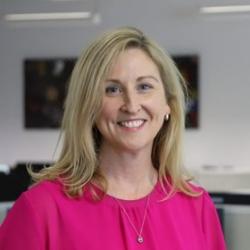
Image: Richard Thorek
PhD in Organisational Behaviour and Strategy (2009)
Dr Jane Gunn is the Partner in Charge of KPMG Australia's People & Change practice, where she leads a team of national team of People & Change professionals. Jane has led large-scale change, leadership development, organisational design and program management engagements across a number of industries, with a particular focus within the Defence and the government sectors.
Jane holds a PhD in organisational behaviour and strategy from the Australian National University and a Master’s degree in International Business (majoring in human resource management) from Queensland University of Technology.
Here are Jane’s responses to some questions that may interest you. You can also read more about Jane’s career story here.
What does it take to become a Partner in a Big 4 company?
In my experience, it has taken deep expertise in my area of specialisation – people and change – and perhaps more importantly, the ability to take different perspectives, particularly that of our clients, the ability to lead people with empathy and with courage and a very strong focus on the disciplined achievement of outcomes.
What career opportunities are available in KPMG for PhD graduates?
We hire graduates every year and COVID hasn’t changed that. We have a diverse range of disciplines with graduates from business, commerce, the arts, technology, law – in fact just about every discipline you can imagine. Starting your career at KPMG sets you up for a long career both within KPMG but also with other both private and public sector organisations. The disciplines of consulting – a laser like focus on achieving outcomes for our clients, data analysis, project and change management skills, communications, leadership, commercial skills – allow our graduates to build skills useful for many other careers in addition to consulting.
What qualities is KPMG looking for when hiring talents with or without a PhD?
I’d say the three biggest qualities that are increasingly important are firstly, people who are keen to learn and adapt, secondly, people who are able to put their own agendas and expertise to one side and truly seek to understand what our clients need to achieve, and thirdly people who can collaborate with others to achieve our clients’ goals.
What would be your advice to our current PhD/MPhil candidates, who may be early in their candidature or close to completion, to prepare for a potential career in industry?
It’s important to be able to balance the rigour of academic study with the client focus and practical problem solving it takes to successfully support our clients to succeed. So, my advice would be, learn everything that you can about the discipline you are studying, learn the rigorous approach that earning a higher degree teaches you, and then be prepared to dial that back and focus on practical organisational, or in the case of consulting, client outcomes. Your expertise and qualifications are not a badge of honour and they don’t always open doors (there are exceptions) – your ability to understand and work to the outcome you’re paid to achieve are what really counts.
